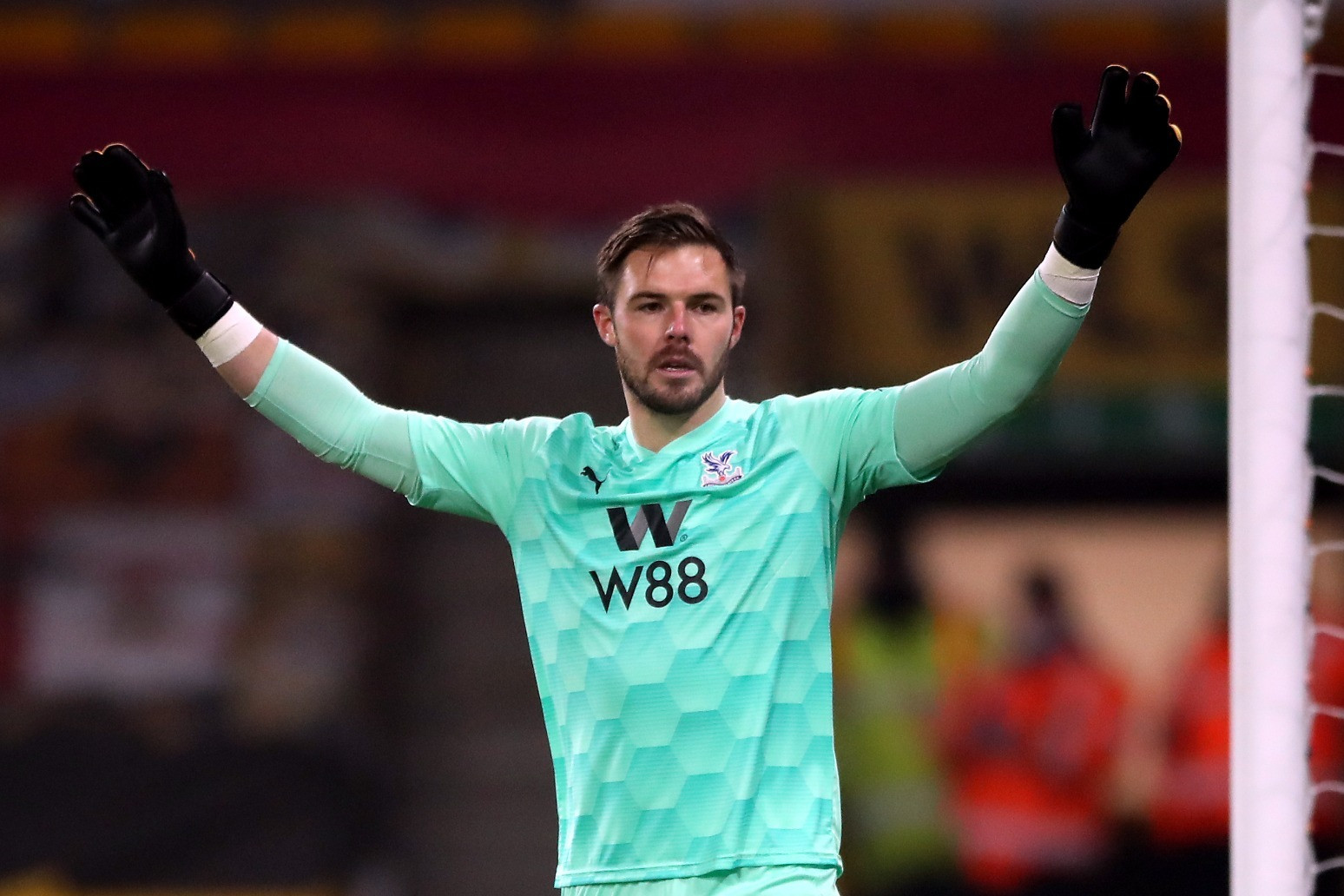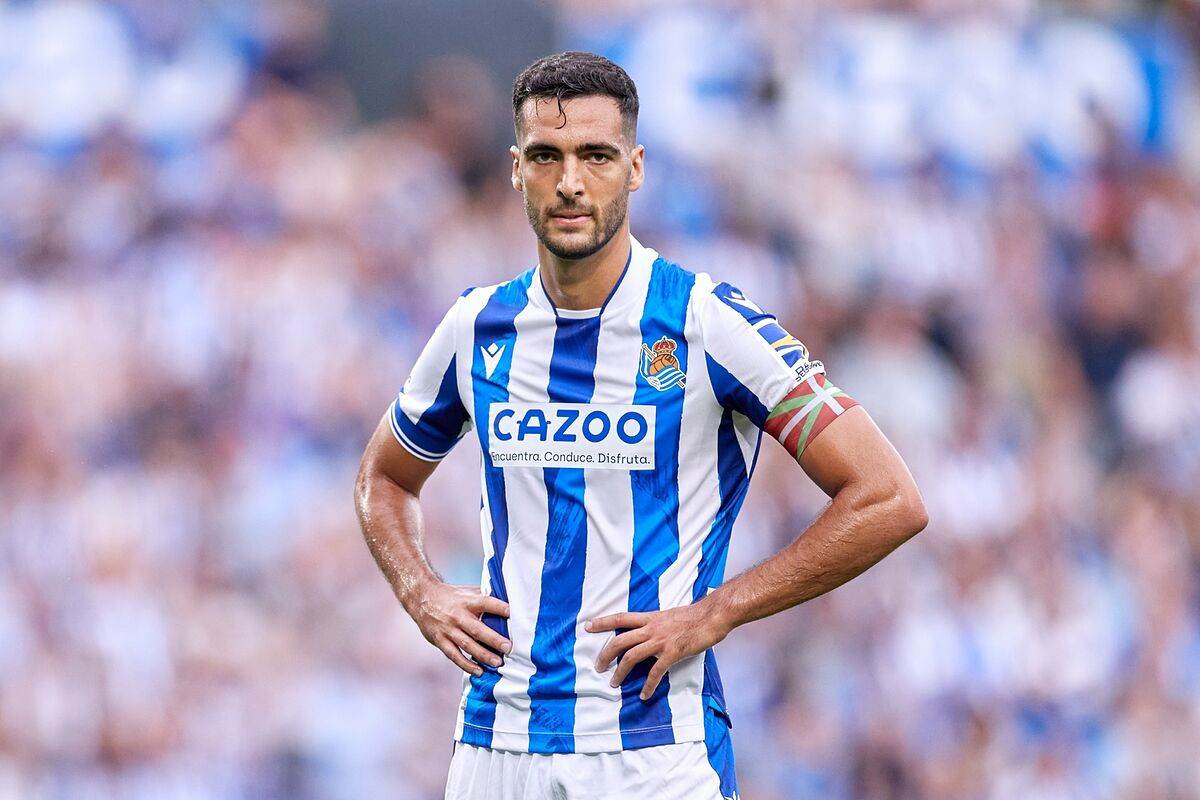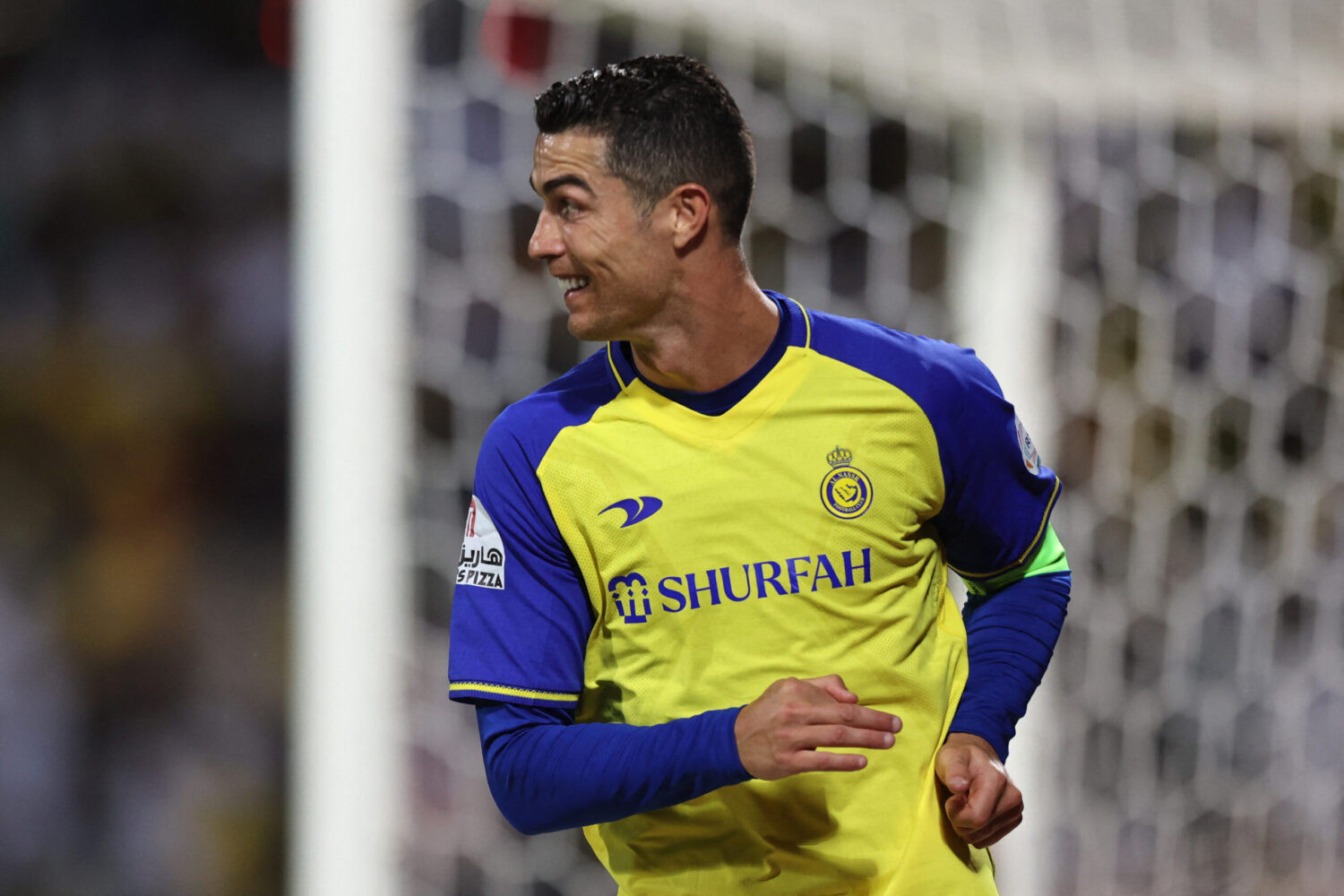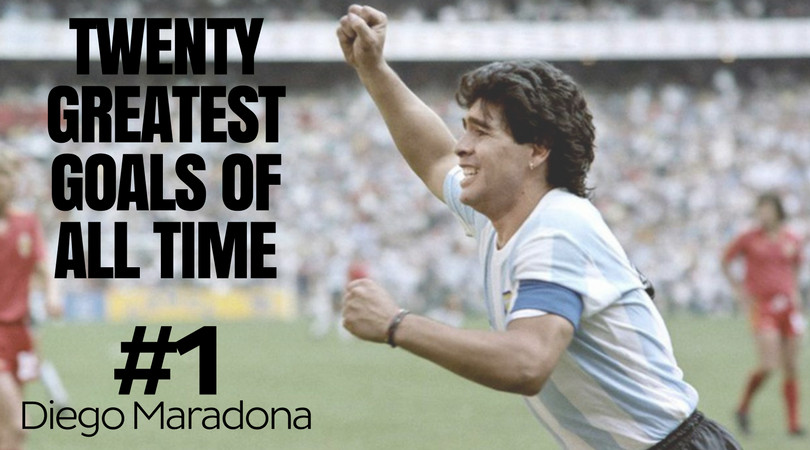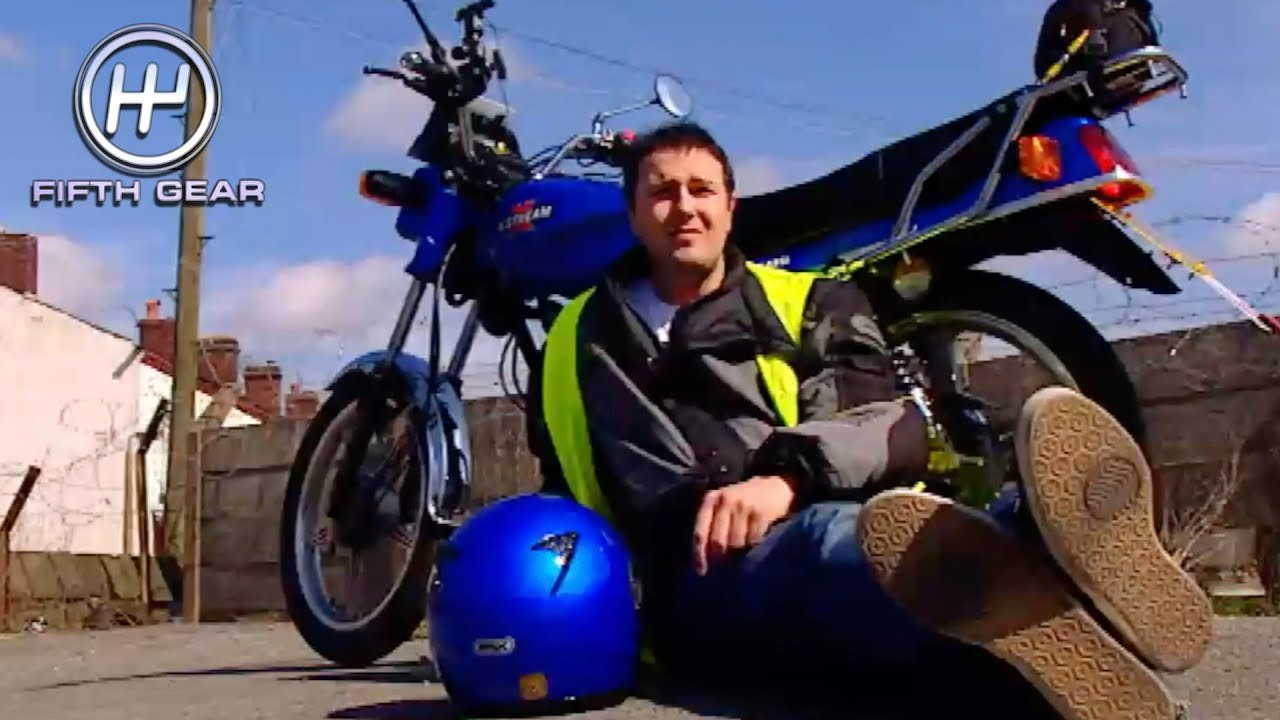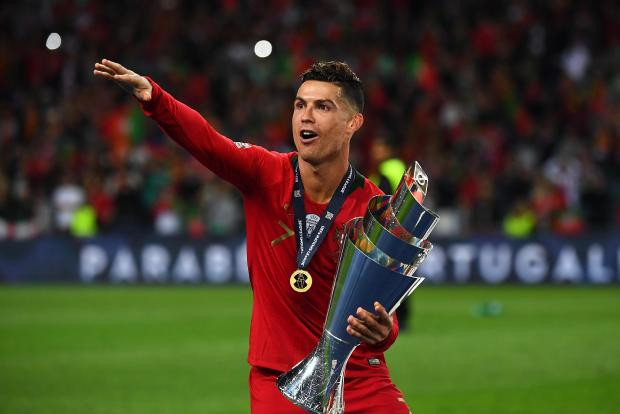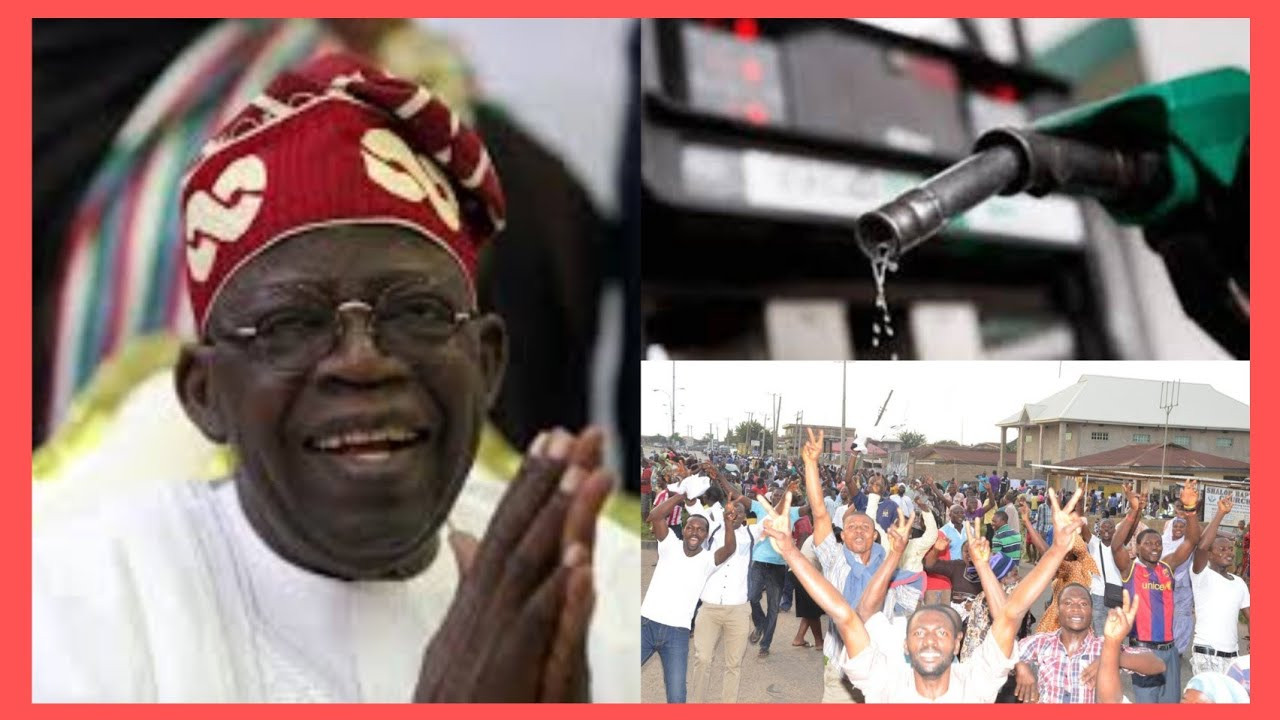Manchester United manager Erik ten Hag faces a club close to his heart in the Europa League on Wednesday, but also one where tragedies shaped his fledgling career.
At FC Twente a team-mate of Ten Hag's died in a plane crash. A year later another player was killed in a car accident.
When Ten Hag was captain a fatal fireworks disaster stunned the club's city.
These three moments have shaped United's upcoming opponents Twente. They also made Ten Hag into the man he is today.
Ten Hag (right) had three playing spells at FC Twente between 1989 and 2002, spanning nine seasons
Andy Scharmin was captain of the Netherlands Under-21 side. He was supposed to be the next superstar in Dutch, and European, football.
"Scharmin and Erik were similar ages, they came from the same village," ex-Twente goalkeeper Theo Snelders told BBC Sport.
On 7 June 1989 Scharmin and 16 other young footballers were flying to Suriname for a pre-season friendly, to raise awareness of Dutch-Surinamese players when their plane crashed on its approach to landing.
In total, 176 people on board were killed, including Scharmin, 13 of his team-mates and their coach.
"It was a huge tragedy for the club," said Snelders, who played with Scharmin for two years.
Ten Hag and other Twente players were pallbearers at Scharmin's funeral and the United manager has a day of mourning on 7 June every year.
"Scharmin was an unimaginable athlete and my friend," Ten Hag said a few years ago.
"I will never forget my team-mate Edwin Hilgerink standing on my doorstep to tell me that a plane had crashed with Andy and his mother on board."
Tom Krommendijk died in a car crash a few months after he signed for FC Twente
A late developer, Ten Hag was still in the youth set-up at Twente when Scharmin was killed.
He played two seasons with the first team before transferring to second-tier De Graafschap in the summer of 1990.
That summer Twente signed promising midfielder Tom Krommendijk, 23, from Feyenoord.
After the first match of the season Krommendijk was driving home when he lost control of his car and died in the resulting crash.
Two players dying in 14 months, at one club.
Ten Hag had only just left Twente but his connections were still deep - indeed, he would rejoin in 1992.
"Twente brought me a lot," Ten Hag said in his news conference on Tuesday before United's match. "[There is] a great deal of history there."
"I was part of their first youth team. Twente is the team I follow the most. I watch them as a fan, not as an analyst."
The Enschede fireworks disaster killed 23, destroyed 400 homes and damaged 1,500 buildings. Then Dutch Prime Minister Wim Kok (left) and Queen Beatrix of the Netherlands (second left) visited the city a year on
In 1994, Ten Hag left his boyhood club again to play for fellow Dutch club RKC Waalwijk. He then spent a season at Utrecht but returned to Twente in 1996, where he finished his playing career six years later - at the age of 32.
In May 2000 the city of Enschede, where Twente play, was the scene of a catastrophic disaster after an explosion at a fireworks warehouse.
Twenty-three people were killed, 950 were injured, and the suburb of Roombeek had to be rebuilt.
Ten Hag was captain of Twente at the time and three days later led out his side before an emotional 2-2 draw at NAC Breda.
Twelve months after the disaster Ten Hag skippered Twente to the Dutch Cup, the club's first trophy in 24 years.
"That brought so much joy to the area," said Snelders. "These tragedies, that’s why Twente now is so close.
"There’s a [Dutch] word called Noaberschap. You look after your neighbours, to help each other, keep an eye on them. That's what the east of Holland stands for. That's Twente."
Ex-England manager Steve McClaren often let Ten Hag lead training sessions when he was in charge of Twente
Ten Hag retired from playing at the end of the following season. He was made head of youth development and, along with Snelders, now back in the Netherlands, started to earn his coaching badges.
"Me and Erik had to do 18 sessions and we always drove together, except when the carnival was around and Erik wanted to go, so he chucked it," said Snelders.
Despite his occasional absence, Ten Hag still got his coaching badges because he was "well-liked" and pretty much "knew his knowledge already" added Snelders.
"He wasn't quite the teacher’s pet, but the teachers were always asking 'do you agree with that Erik?'"
By the time of his final season with Twente, 2008-09, Ten Hag was so embedded with the club that manager Steve McClaren - formerly England boss - let him take training sessions for the first two months of his tenure, so as to not upset the side's culture.
Ten Hag left to become a coach at PSV Eindhoven in 2009, having helped shape the modern Twente. But how did the club influence him?
"He cares about people. He is a very caring soul," said Snelders. "He is not just interested in the player but also the person, and their families.
"I didn't think he'd be managing Manchester United [when he left Twente]. But he made the right steps to develop and he's very good with young players.
"He's got the talent. At Ajax he grew again. What he did there was unbelievable."
"He was always the best. He was always a big mouth. He was a little Johan Cruyff with the mouth (giving instructions to team-mates during matches). He was always thinking he knew things better than us."
Leon ten Voorde is speaking about his childhood friend Erik ten Hag, now the Manchester United manager, whose team on Wednesday face FC Twente, where he spent 23 years as a player and then coach.
Ten Hag’s love of football started with playground games with Ten Voorde in their hometown of Haaksbergen. Situated 10 miles away from the city of Enschede where FC Twente are based, its people are proud Tukkers. A Tukker is not only a regional distinction for those in the east of the Netherlands, but also a description of a particular way of life.
“We are different from Amsterdam. They are more arrogant there and think they know everything,” says Ten Voorde. “When Twente beats Ajax it is always a big deal. It is like beating Manchester United or Manchester City as a smaller club."
Imagine a version of Yorkshire pride where everyone in the region supports the same football club, and you have a good approximation of FC Twente’s fanbase. When Ten Hag was a child, he divided his time between playing for his local club SV Bon Boys with Ten Voorde and travelling to the Diekman Stadium (Twente’s ground between 1956 and 1998) in Enschede to watch his team. Swashbuckling defender Epi Drost was his footballing hero.
“He was the captain of the team in the 1970s – a very good team,” says Ten Voorde of Drost. “It was the best team that never won a championship here because they had unlucky timing. At that moment when Twente was a top team — they beat Juventus in Europe (in the semi-final of the 1974-75 UEFA Cup) — they were unlucky because Ajax and Feyenoord were the biggest teams in the world. If they had played in any other era, they might have been three-time champions of Holland.
“It was a very good team. They went to the finals of the Euro Cup (losing 5-1 on aggregate to Borussia Monchengladbach in 1974-75). Epi Drost was a very good defender because he had a very skilled way of playing. He was like a striker in his defending. He took a lot of risk always in his game. Fans loved it, and for Erik, Epi Drost was his hero.”
Drost made more than 400 appearances for the club, owned a pub in Enschede and contemporary reports tell of him driving a Chevrolet around the area and enjoying its various nightclubs. Fans dubbed him “Mister Twente” and a statue of him was eventually erected in his name outside the stadium. In 2009, following the renaming of their ground to De Grolsch Veste for sponsorship reasons (Grolsch’s brewery plant is based in Enschede), Twente supporters covered the company logo with a banner hailing Drost.
Ten Hag loved the larger-than-life defender and when he joined FC Twente’s academy from Bon Boys in his early teens, Drost was an academy coach. Such was his promise, the club legend invited him to take part in training sessions with older training groups and matches.
Ten Hag formed a bond with his playing group in the academy, but unfortunately, tragedy beset some of his closest friends. Andy Scharmin, a talented player tipped for future success in the Netherlands national team, died in a plane crash when travelling to Suriname for an exhibition game.
“I will never forget my team-mate Edwin Hilgerink standing on my doorstep to tell me that a plane had crashed with Andy and his mother on board,” Ten Hag said of the tragedy, years later.
“That was a huge blow. At his funeral, I carried Andy’s coffin with other team-mates. It happened on June 7, 1989 — and every year on that date I have a day of mourning.”
Playing for Twente’s senior team was a childhood dream for Ten Hag and he achieved that partway through the 1989-90 season, at the age of 19.
“He was a skinny boy with trousers too big for him when he came into the first team,” says Fred Rutten, who played with Ten Hag during his first season, before later serving as his head coach between 1999-2001.
When Ten Hag retired from playing and moved into coaching, he was one of Rutten’s assistants at Twente between 2006 and 2009. Few people know Twente or Ten Hag’s years there better than Rutten, who considers the United manager a good friend.
“He was a midfield player with a good eye. At that age, I was a central defender and I supported him in the midfield,” says Rutten.
“When it came to tactical performance, Erik had already in his head an idea of what has to be done on the pitch to win a game. That was something natural to him. And he was very fanatical about football.”
Ten Hag had an inauspicious debut for his hometown club. He featured for five minutes towards the end of a 0-0 draw against RKC Waalwijk on October 15, 1989, before being substituted for Robin Schmidt in a 5-0 defeat by FC Groningen on December 13. Most literature from Ten Hag’s playing days describes him as a holding midfielder with modest physical skills and technical gifts. First emerging as a holding midfielder but able to fill in at a centre-back, right-back or on the right-wing, he was known as a “verlengstuk van de trainer” – a term that literally translates to “lengthening piece” but is used to describe players who serve as the coach’s voice on the field.
“He always thought he knew better than the coach,” jokes Ten Voorde. “He was not difficult to work with, but he was always talking. He was always asking questions.
“Maybe for some coaches, his approach was difficult. But he mostly had a good relationship with his coaches.”
His progression during his first season was slow but steady. A biography of Ten Hag – written by Maarten Meijer in 2022 — describes how assistant coach Eddy Achterberg and first team manager Theo Vonk preferred to motivate a young Ten Hag with the stick rather than the carrot. Following a disagreement, Vonk called Ten Hag into his office. The coach pointed to a tall ladder he had set up in the room and told him he was on the bottom rung and needed to work harder to catch senior players. The head coach ignored Ten Hag for a week before starting him in the next fixture.
Ten Hag’s first senior spell with Twente lasted a single season. He played 16 games in all competitions (mustering 10 starts) before signing a two-year contract with second-division side De Graafschap, where he went unbeaten in the 1990-91 season, earning promotion to the Eredivisie. Members of the squad reunite in March each year whenever possible to celebrate that achievement.
De Graafschap found life in the Dutch top flight difficult though, finishing 1991-92 in 17th place. Ten Hag missed two months of the season after suffering an injury to his right leg but returned to Twente that summer for his second spell.
The start of the 1992-93 season saw FC Twente establish themselves as one of the best teams in the Netherlands. Ronald de Boer had great attacking chemistry with Ghanaian forward Prince Polley and the side won six of their opening eight Eredivisie matches. Working under head coach Rob Baan, Ten Hag’s primary role was to bring steel to midfield and defence. Nicknamed “Haggie” by friends, he snapped into tackles, setting up a platform for team-mates to launch counter-attacks.
Theo Snelders spent eight seasons at FC Twente before moving to Aberdeen in 1988. Although Ten Hag was still in the under-19 academy side at the time of his departure, whenever he checked in on his first club he noticed the “really tiny skinny boy” who eventually grew to encapsulate the Tukker spirit.
“He had been to De Graafschap and come back. But all of a sudden in two or three years, he was a different boy,” says the former goalkeeper. “He looked stronger. I could see a change.
“What I always saw was a player who wasn’t quick, but good with his brain during a game. He could read the game well. Tactically he was very aware.”
One game of importance came in December 1992 when Twente travelled to Amsterdam to play Ajax. In a bitty, nervy encounter played in torrential rain, Ten Hag was booked and team-mate Jan van Halst saw red for two cynical tackles. Ten Hag teed up Polley for the winning goal shortly past the hour mark to seal a 1-0 victory — their first-ever league win at Ajax.
“For the coach, he was very important,” says Ten Voorde. “He was not the best player in the team but he can read the game. In the game, he knows everything about the opponent — the strengths, the weakness.”
Twente would lose momentum in the league shortly after that due to Ajax coach Louis van Gaal re-signing De Boer, much to Ten Hag’s frustration. Twente’s form took a dip in January and March and the club finished fifth. The 1993-94 campaign was turbulent, too.
Now aged 24, Ten Hag’s headstrong nature led to him falling out with Baan after a dressing room disagreement. The reason is unclear, but Ten Hag was dropped to the reserves for three matches in late March and was only restored to the starting line-up after he apologised to the coach. Ten Hag played five of Twente’s six remaining games of the league season (they finished fifth again) before leaving Twente once more, signing a one-year deal with RKC Waalwijk. According to Meijer’s biography, the midfielder told the Dutch press, “I would rather be a base player at RKC than 12th or 13th man at FC Twente,” after the deal.
After RKC finished eighth in the Eredivisie, Ten Hag signed for FC Utrecht (a club he would later manage) in May 1995. The following year, Ten Hag returned to Twente for his third and final playing spell after establishing himself as a solid, workmanlike Eredivisie player.
Watch highlight reels from that era and you can understand why — as a manager — Ten Hag appreciates the ball carries of Harry Maguire, the passing ability of Matthijs de Ligt and the aggressive tackling of Lisandro Martinez. He helped set the standard in the dressing room. Meijer’s biography recalls a pre-season training session in 1996-97 when new signing Ellery Cairo finished last in a running drill. Ten Hag prodded the winger and asked, “Don’t they run at Feyenoord?”
“For me, when I was a coach (from 1999-2001), Erik was important because he knows exactly what we as technical staff want,” says Rutten. “And he performed it in the team. Every training session he gives more than 100 per cent.”
“Sometimes in games at half-time, I have to get a little bit angry at Erik. Because he already started (giving the team-talk) before the coach started!
“In his head, there was only one thing: football,” says Rutten. “Because Erik is a strategist. He has an overview of the pitch. When I was manager, we had a good year with Twente and I played him as a central defender, or as a midfield player.”
FC Twente finished third in Ten Hag’s first season back, then ninth in 1997-98 and eighth in 1998-99, becoming captain in this time.
The 1999-2000 season was marred by off-field tragedy in Enschede. On the afternoon of May 13, 2000, an explosion at a fireworks depot in the Roombeek neighbourhood claimed the lives of 23 people. More than 950 people were injured in the explosion, which was thought to be caused by a fire that set off more than 177 tonnes of industrial-grade fireworks. Firefighters travelled from across the German border to help extinguish the blaze, with news reports stating the blast could be felt more than 40 kilometres away.
The disaster deeply affected those in Enschede. Rutten led a training session close to the local air base hours before the explosion, with Twente scheduled to play Feyenoord the following day. Ten Hag later described how the windows of the dressing room at the training ground — which was situated half a mile away from the explosion area — were knocked out of their frames by the blast. The club captain spent 30 minutes watching local news and joined team-mates in calling friends and family members based in Enschede before boarding a bus to Rotterdam to take on Feyenoord. The game finished 1-1, and in a post-match interview, Ten Hag expressed his anger at the powers that be for the game going ahead. An excerpt from Meijer’s biography reveals the incident sat uncomfortably with him years later.
“I took a position in a televised interview after that game, saying that half the city was on fire and that it had been a lack of leadership that we were required to play it anyway,” he says. “I was not thanked for that. I had to leave the team away from FC Twente. Pressure was put on the trainer, political games were played. But Fred (Rutten) didn’t give in and I still had a running contract. I shouldn’t have said it on television, but what else could I have done? I never saw that interview again, but I still feel the shame of that time.”
“They didn’t want to (play), but they had to,” says Snelders. “Since then it formed a bond (between players and the fanbase).”
The summer of 2000 was a difficult one for those in the region. Both owners of the SE Fireworks warehouse were arrested later that May (the pair were sentenced in 2002 for illegally storing the fireworks) and people across Twente came together to rebuild.
“We have a good bond here. We have a term here in the dialect; noaberschap. We help each other. If you are in trouble or there are problems, a neighbour will help you,” says Snelders.
Niggling injuries hampered Ten Hag’s 2000-01 season, but there was respite for him and the club in the Dutch Cup. Twente beat PEC Zwolle in the quarter-finals and then edged past Vitesse Arnhem on penalties to reach the final. It is estimated that 35,000 Tukkers travelled to De Kuip in Rotterdam for the final against PSV Eindhoven, who had already won the league. They took fewer than 10,000 supporters.
“That was like going from zero to hero,” says Snelders, who was now playing for Maastricht. “All the people were happy after the doom and gloom of the disaster.”
PSV’s squad included Mark van Bommel (voted Dutch player of the year that season), the league’s top scorer Mateja Kezman, and Ruud van Nistelrooy.
“We were the underdogs,” says Rutten. “But we prepared for five or six weeks ahead of the final, as coach to repeat some things (the players needed to remember) to win the game. Physically we were in top condition.
“In the preparation for the game, we had a tactical strategy to stop some of their key players. It was very important for us to mark some key players out of the game, for example, Mark van Bommel.”
Ten Hag gave a speech to team-mates in the dressing room moments before kick-off, telling them to use the final as an opportunity to bring joy back to the people of Twente. His team ground down PSV across 120 minutes of attritional football. With scores at 0-0 after extra time, a bizarre penalty shootout ensued with PSV leading it 3-1 only to lose 4-3. At the time, it was Twente’s second-ever major trophy.
The cup final went down as one of the greatest days in Twente’s history, Ten Hag telling team-mates he was proud of them and what they had done for the region with the victory. The city of Enschede was euphoric, with fans filling the streets when the players returned.
“Erik was a leader. He was a good captain because also he is a good human being,” says Rutten of his captain’s role in the season’s success.
Ten Hag played one more season at Twente and then retired at the age of 32, saying he had “nothing to prove anymore”. His final Eredivisie match was a 0-0 draw with SC Heerenveen. Ten Hag spent 13 years as a professional footballer, making 336 appearances, 221 of which came for FC Twente.
He quickly moved into youth coaching, spending the 2002-03 season in charge of the under-17 side at Twente, before progressing to the under-19 side for three years after that. When Rutten became Twente’s head coach again in 2006, Ten Hag was one of his assistant coaches.
“In the morning when he would wake up, he was only thinking football,” says Rutten. “I am a fan of his. We had many, many discussions. Good discussions, as friends.”
Rutten left to manage Schalke in 2008, and Ten Hag spent a single season as Steve McClaren’s assistant in 2008-09. A season later, Twente won their first – and only – Eredivisie title under McClaren’s management.
“His heart is Twente, and it will always be,” says Rutten.




